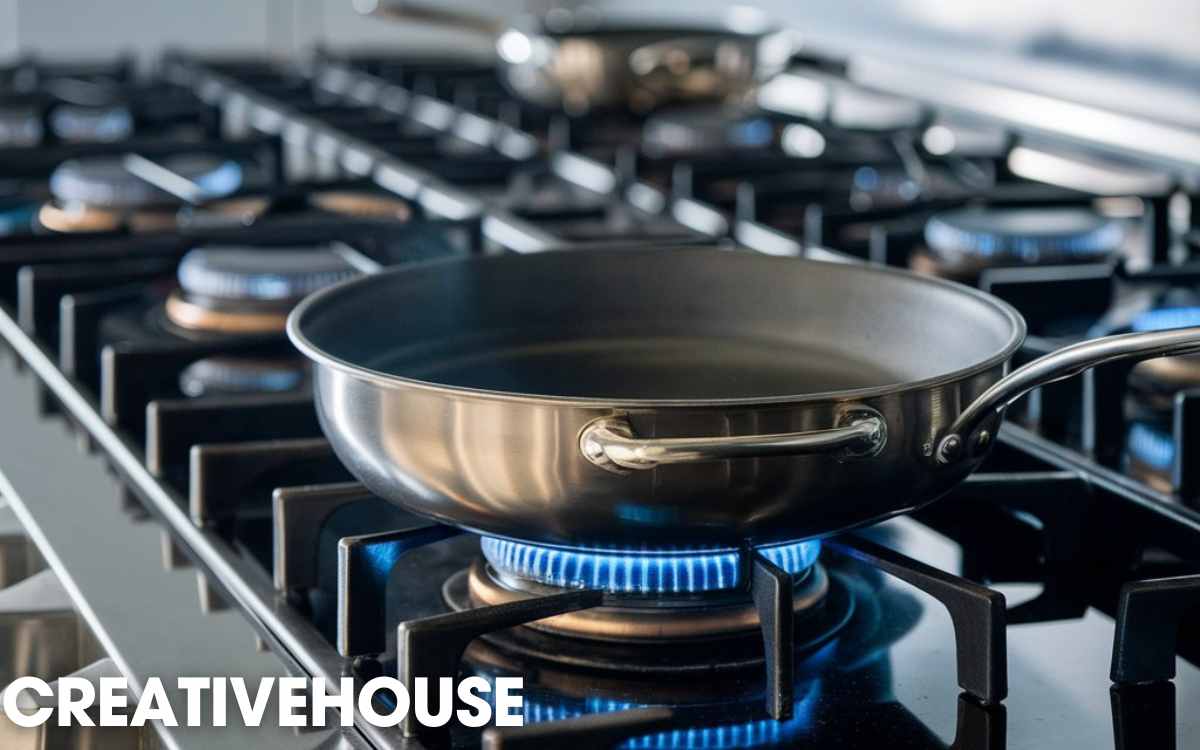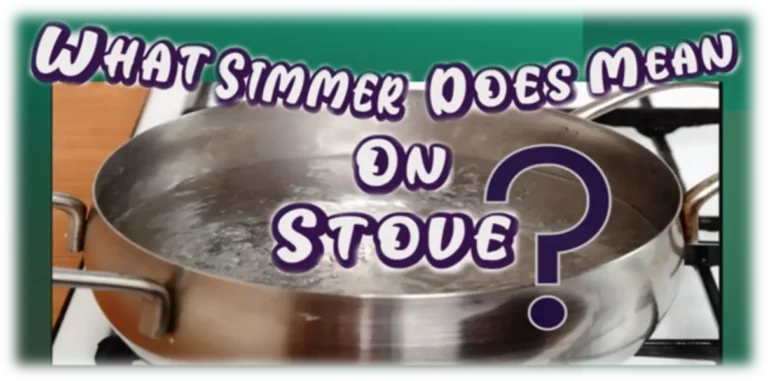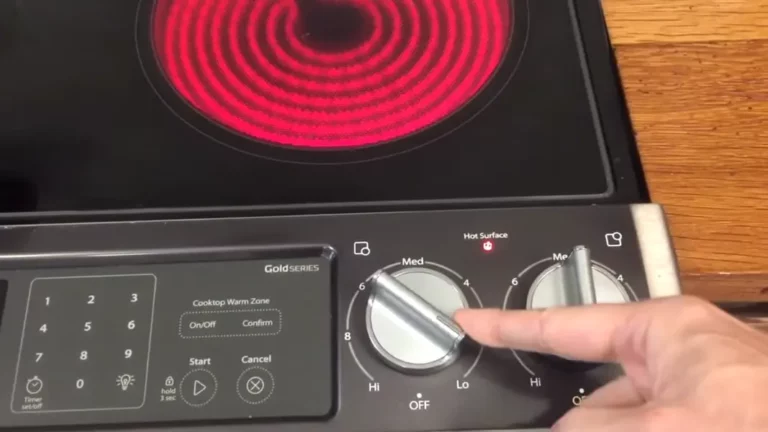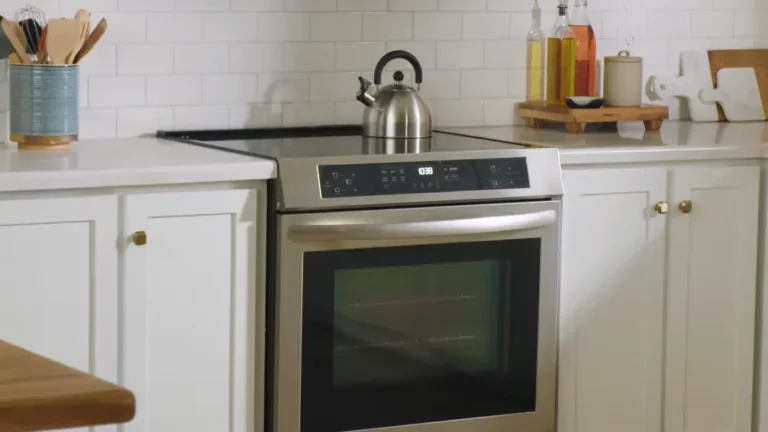Most induction cookware can be safely used on a gas stove. There are some prerequisites but yes you can use induction cookware on a gas stove.
Not only do these cookware work but there are some clear advantages in using them on gas stoves. Be sure to check this article to know which induction cookware you can use on gas stoves.

Cookware That Works with Gas Stoves and How Good They Work
There are numerous cooking techs available on the market for the modern household. Each one has its own set of advantages and compatible cookware sets.
Aluminum (Ceramic Coating)
The most commonly used cookware on gas stoves is Aluminum ones that have Ceramic coating on them. They heat up quickly and evenly even with the wide spray of the flames.
The Ceramic coating easily releases food so it is a breeze to clean. It’s scratch-resistant and dishwasher-safe to make your life easier.
Ceramic coatings are usually free of any PFOA or lead which makes it a healthy option as well. It has great heat conductivity and cooks fast too.
Aluminum (Non-Stick Coating)
There is another Aluminum cookware that we use on gas stoves. But the difference on this one is that the coating is non-sticky.
These pots and pans are lightweight, heat up very quickly, and are easier to handle compared to ceramic-coated cookware. The non-stick coating makes cooking and cleaning them hassle-free.
But they do tend to overheat and in high temperatures release harmful fumes. These can be used in both induction and gas stoves. But for it to work on induction stoves, it needs to be magnetized.
Copper
Copper cookware is the best there is for gas stoves. These have been the traditional cookware of American households since long ago. They offer exceptional heat transfer on gas stoves.
Copper cookware takes the least amount of time to heat up, start the cooking, and cool down before you can clean it. These are best suited for cooking techniques that rapidly change temperature.
Copper cookware is beloved in French cooking techniques. Sautéing and flambéing are almost always done on these dishes.
But you need to regularly maintain them so they do not tarnish or lose their appearance.
Carbon Steel
Carbon steel is an incredibly versatile cookware. You can bake, fry, and even sauté on these. You can use them on a gas stove or oven or even an induction stove.
It is heavier than most other cookware and more durable than them. This cookware can withstand high temperatures with ease. If you do cooking with high heat, carbon steel cookware can make your day easier.
But where they lack is the stickiness. Food easily stays stuck even after you try to scrape them off.
You will have to drizzle a bit of cooking oil on every use. Even though it can handle high temperatures it can make the seasoning flake off.
Cast Iron
Cast iron pots and pans are a favorite among chefs and home cooks alike. These have exceptional heat retention and even distribution. Of all the cookware listed here, these hold heat the longest.
So cooking that needs consistent heat like searing meats or frying is best done on cast iron cookware. These do not come non-stick but develop the property as you keep using them.
The oil you use gets polymerized into cookware seasoning that adds a unique flavor to the dishes.
And the best thing about these is that they are induction stove-compatible. The bottom has magnetic properties and lasts a lifetime.
Clay Pots
One cookware that you can only use on gas stoves or over burning flames to be exact is cookware made of clay. Clay pots like earthenware and terracotta have been used in the culinary world for centuries.
They have the best heat retention capability and make slow cooking with it the best. Simmering or braising is done best on clay pots. They are also porous and absorb the moisture and flavors from food while cooking.
They also have an amazing aesthetic appeal to them. There are museums full of ancient relic clay pots that are priceless.
Unfortunately, you cannot use them on induction stoves because of the lack of magnetic properties.
Stainless Steel
At last comes the best cookware out there. You can use stainless steel cookware on any stove. If they have a magnetic core, they can even be used on induction stoves.
Stainless steel is not the best conductor of heat. That is why they have a base made of a different material. The aluminum or copper layer helps with heat distribution and the stainless steel exterior makes it durable and easy to clean.
What sets these apart is their non-reactive nature. It does not interact with any acidic or alkaline ingredients and you can cook almost anything in them.
Another great thing about these cookware is that they have the longest lifespan. But they are prone to scratches so you have to be a bit more careful in how you handle them.
Using Induction Cookware On a Gas Stove: Are They Compatible?
Almost all induction cookware is safe to use on gas stoves. The main difference between induction cookware and normal ones is the magnetic properties.
List of Induction Compatible Cookware
Here is a list of the cookware that are compatible with induction stoves:
- Stainless Steel: There are stainless steel cookware that have a magnetic base which is great for induction.
- Cast Iron: Cast Iron is another commonly used cookware with induction stoves. The main material for magnetism is iron so anything with cast iron is good to go.
- Carbon Steel: Similar to cast iron, carbon steel also has magnetic properties. So you can use them on induction cookware.
- Enamel Cast Iron: Cookware made of enamel-coated cast iron is also suitable. The enamel coating is only to make them non-sticky and does not provide any additional functionality.
- Aluminum: Not all aluminum cookware is compatible with induction cooking. Most of them do not have a magnetic base. Be sure to read the manual to see if they have the go on induction stove use.
Compatibility with Gas Stoves
All of the cookware mentioned above is usable on a gas stove. The only difference is that some are less durable over flames.
Copper base stainless steel has some corrosion issues which make it problematic to use on gas stoves.
Here are some cookware that you can use on induction stoves and gas stoves:
Compatibility Table:
| Type of Cookware | Induction Stove | Gas Stove |
| Aluminum (Ceramic) | (Only When Magnetized) | Yes |
| Aluminum (Non-Stick) | (Only When Magnetized) | Yes |
| Carbon Steel | Yes | Yes |
| Copper | No | Yes |
| Cast Iron | Yes | Yes |
| Stainless Steel (Aluminum) | Yes | Yes |
| Stainless Steel (Copper) | Yes | No |
Induction Vs. Normal Cookware on Gas Stoves: Safety Concerns
Just because induction is the latest tech, does not mean the need for traditional cooking stoves is gone. You still need a gas stove for many reasons. Especially if you are into heavy cooking.
There are benefits to using induction cookware on gas stoves instead of the crappy old ones you have at home.
Let’s take a look at how different induction and normal cookware act on gas stoves:
| Deciding Factor | Induction Cookware | Normal Cookware |
| Safety | Very high | High |
| Ease of Use | Great | Moderate |
| Efficiency | 60-70% | 40-50% |
| Maintenance costs | High | Low |
| Weight | Low | High |
| Durability | High | High |
| Lifespan | Long | Relatively Shorter |
| Price | Expensive | Cheap |
| Availability | Not Easy to Find | They are Everywhere |
When you use induction cookware on gas stoves, it is a good idea to keep some precautions in mind to avoid any unforeseen hassle.
- Regulating Heat: Since the induction cookware does not absorb heat from the induction stove, it is advisable to not heat your gas stove too much. Overheating can cause tears and spilled food.
- Magnetic Properties: The magnetic properties actually help dissipate heat from the cookware to the food quickly. So make sure you put them on the induction stove once in a while so it does not lose their properties.
- Handling with Care: You should always handle your cookware with care. More so if you want to use the induction cookware on your gas stove for a longer period.
- Proper Ventilation: Gas stoves make combustion gas that needs ventilation. If you are not careful, you could end up blowing up your kitchen.
- Thermal Conduction: Induction and gas stoves distribute heat differently. The properties of the cookware are directly affected because of this. Never overuse your cookware on a gas stove at high temperatures.
Can You Use Induction Cookware on a Gas Stove – (FAQs)
Can I use induction cookware on a regular electric stove?
You can use induction cookware on any type of stove as long you understand that it may diminish some of its performance.
What is the main difference between gas and induction cookware?
The only differences are the magnetic properties of induction cookware and how fast each type of cookware heats up. Induction cookware is usually more efficient and has minimal energy loss.
How to tell if a pan or pot is induction-compatible?
Rotate the pan and put a kitchen magnet on the bottom. If the magnet sticks then you can use them on your induction stove. If not then the pot is not compatible with induction stoves.
References:
https://forums.egullet.org/topic/162969-induction-friendly-cookware





